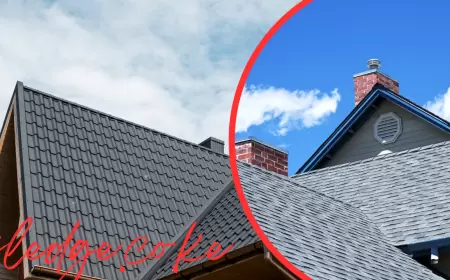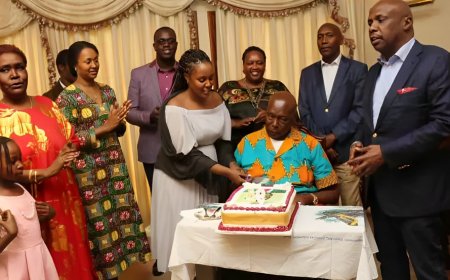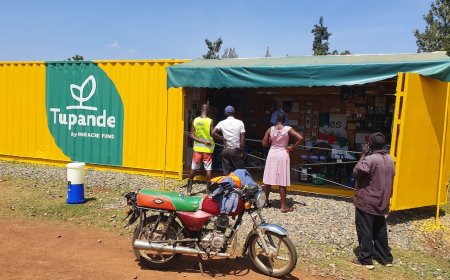Freemasons in Kenya: Here is Everything You Need to Know
Discover the history, membership, and truth behind the secretive world of Freemasonry in Kenya.

DISCLAIMER!!!
This article aims to provide general information about Freemasonry in Kenya and is not intended to promote or endorse any particular organization or belief system. The views expressed in this article are based on available information and do not necessarily reflect the official stance of the Freemasons or any of its members.
The Freemasons have long been shrouded in mystery and intrigue. This ancient fraternal organization, with its roots in medieval Europe, has captured the imagination of many. While their rituals and practices may seem strange to outsiders, the Freemasons are an organization of men from all walks of life, religions, and backgrounds who come together with the common goal of charity and personal growth. This article will delve into Freemasonry in Kenya, exploring its history and membership and dispelling some of the myths and misconceptions surrounding this secret society.
The History of Freemasonry
The origins of Freemasonry are steeped in speculation and myth. While the exact date of its establishment remains unclear, modern Freemasonry as we know it began in England in 1717. Some theories suggest that the Freemasons are descendants of the builders of Solomon's Temple in Jerusalem or an offshoot of the Knights Templar. However, these myths and theories have been debunked over time.
The true roots of Freemasonry can be traced back to the stonemason guilds of medieval Europe. These guilds constructed remarkable architectural wonders like the Notre Dame Cathedral in Paris and Westminster Abbey in London. The members of these guilds held closely guarded secrets and passed down their knowledge and skills through rigorous initiation processes.
The masonic lodges persisted as the guild system declined in the 16th and 17th centuries. To sustain themselves, the stonemason guilds began recruiting non-masons, including wealthy individuals, expanding their membership beyond Europe. Freemasonry has evolved beyond its medieval origins, emphasizing personal development and character building rather than physical construction.
Becoming a Freemason
If you want to join the Freemasons, the first step is to seek admission based on your own free will and accord. You must approach an existing member who can sponsor your application. The joining process is managed at the Lodge level, and you need to contact the Lodge if you wish to consider your membership application.
If your application is successful, you will be invited for an interview, during which your family and their opinion of your membership will be discussed. The Freemasons are aware of the opposing views associated with their organization and seek to ensure that potential members have a supportive family environment. Following the interview, your application will be announced to the Lodge to check for any objections. If no objections are raised, you will be welcomed into the organization and shown the principles and rituals of Freemasonry. New members are initiated through special ceremonies.
It is important to note that Freemasonry is open to individuals from all backgrounds, and its primary purpose is to empower people to become the best versions of themselves.
Freemasons in Kenya
Freemasonry has been in Kenya for some time, although its membership remains largely unknown to the public. Due to the secretive nature of the society, the names of Freemason members in Nairobi and other parts of Kenya have yet to be widely known. However, public figures, such as lawyer Ambrose Rachier, have openly acknowledged their membership in the Freemasons.
During an interview with NTV Kenya, Ambrose Rachier debunked myths and misconceptions surrounding the secret organization. He revealed that the Freemasons in Kenya consist of wealthy individuals and those leading ordinary lives. Rachier also mentioned that some members of the Freemasons in Kenya are court judges.
The Freemasons Hall in Nairobi is located along Nyerere Road. The East Africa region has approximately 48 lodges, with 34 in Kenya. These lodges are spread nationwide, including cities like Nakuru, Ruiru, Naivasha, Eldoret, Kitale, Kericho, Kisumu, Nyeri, and Mombasa.
Advantages of Joining Freemasonry
While the allure of wealth and power may be associated with Freemasonry, the organization emphasizes philanthropy, personal development, and fostering strong relationships. Joining the Freemasons provides various advantages, including:
- Global Brotherhood: Freemasonry is a worldwide society that allows members to connect and meet fellow Freemasons from different regions and cultures. This provides opportunities for intellectual discussions, personal growth, and exploring diverse perspectives.
- Intellectual Stimulation: As a Freemason, you will have access to intellectual discussions and talks that can contribute to your personal and intellectual development. Engaging with individuals from different backgrounds and professions widens your perspective and enriches your knowledge.
- Diverse Social Interactions: Freemasonry encourages interaction with individuals from various walks of life, fostering a sense of camaraderie and providing a platform to learn from others' experiences. This diversity allows for personal growth and exploring different aspects of life.
- Charitable Endeavors: Freemasons have a solid commitment to charitable work. By joining the Freemasons, you become part of a community that actively supports philanthropic efforts, such as donating to charitable organizations and engaging in community projects. Participating in such initiatives can bring a sense of fulfillment and contribute to making a positive impact in society.
Disadvantages of Joining Freemasonry
While Freemasonry offers numerous benefits, it is essential to consider some potential drawbacks before deciding to join. These disadvantages include:
- Time Commitment: Freemasonry requires regular attendance at lodge meetings, which can be challenging if you have other commitments or a busy schedule. Members are expected to prioritize their involvement in lodge activities, which may require dedicating time.
- Financial Considerations: Freemasons are encouraged to contribute to charitable causes and support the Lodge's activities. This financial obligation and potential annual dues may pose a challenge if you are financially stable and have limited resources.
- Negative Perception: Despite efforts to dispel myths and misconceptions, Freemasonry still faces a negative image. Some people associate the organization with sinister practices, such as human sacrifice. If you become a member, you may face judgment or prejudice from those who hold these negative beliefs.
It is essential to weigh these potential disadvantages against the benefits and make an informed decision based on your circumstances and values.
READ ALSO: NTSA Driving License Categories, Requirements, and Fees
Conclusion
Until recently, Freemasonry in Kenya remained shrouded in secrecy, fueling myths and misconceptions. However, efforts to demystify society have led to a better understanding of its principles and practices. Joining the Freemasons offers an opportunity for personal growth, intellectual exploration, and involvement in charitable initiatives. While society has challenges and has been subject to unwarranted criticism, Freemasonry is a fraternity that aims to bring people together and positively impact society.
Frequently Asked Questions about Freemasonry
4.1 Who is the head of the Freemasons?
The head of the Freemasons is the Grand Master of the United Grand Lodge of England (UGLE), currently held by HRH, The Duke of Kent. He has served as the Grand Master for over 50 years.
4.2 Why are there only men in Freemasonry?
The tradition of exclusively male membership in Freemasonry dates back to its 1723 constitution. However, some lodges in the United States and Europe have relaxed this rule and now recognize female members.
4.3 How is one initiated into the Freemasons?
The Freemasons have initiation ceremonies that involve certain rituals, which are not publicly disclosed and are known only to members of society.
4.4 How does one become a Freemason?
To become a Freemason, one must submit an application and be proposed and supported by existing members. The application undergoes vetting, and the applicant is initiated into society if successful.
4.5 What do Freemasons do?
Freemasons focus on personal development and strive to be individuals of integrity. They also actively engage in philanthropic endeavors and contribute to charitable causes.
4.6 What happens at a lodge meeting?
Lodge meetings typically consist of two parts. The first involves administrative procedures, while the second revolves around ceremonies and rituals.












































































